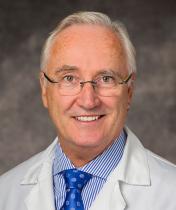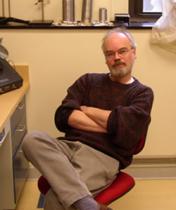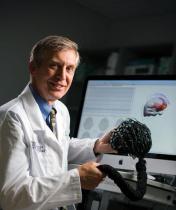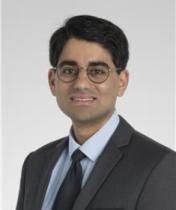Search results, if found, will automatically update as terms are selected. If no results are displayed, please revise your search terms.
Filter By:

Kevin D. Cooper, MD
ChairDepartment of DermatologySchool of MedicineProfessorDepartment of DermatologySchool of MedicineProfessorDepartment of PathologySchool of MedicineMemberImmune Oncology ProgramCase Comprehensive Cancer CenterEmail: kevin.cooper@UHhospitals.org
Phone: 216.844.3111
I investigate psoriasis, atopic dermatitis, autoimmunity, cutaneous immunobiology, UV and solar effects, and immunomodulatory therapy.

Colleen Croniger, PhD
Associate ProfessorDepartment of NutritionSchool of MedicineAssistant DeanBasic Science EducationSchool of MedicineAssociate ProfessorDepartment of Genetics and Genome SciencesSchool of MedicineEmail: colleen.croniger@case.edu
Phone: 216.368.4967
My research involves metabolism, CAAT/enhancer binding protein beta (C/EBP beta), transcription, Phosphoenolpyruvate carboxykinase (PEPCK), knockout animal models, and perinatal metabolism.

Xinghong Dai, PhD
Assistant ProfessorDepartment of Physiology and BiophysicsSchool of MedicineEmail: xxd159@case.edu
Phone: 216.368.5131
We use cryo-electron microscopy (cryoEM) as the major tool for structure-guided antiviral drug discovery and vaccine design. Current focuses are human herpesviruses and hepatitis B virus.
 David Schwartz Photography
David Schwartz PhotographyDavid Danielpour, PhD
ProfessorCase Comprehensive Cancer CenterAssociate ProfessorDepartment of UrologySchool of MedicineAssociate ProfessorDepartment of PharmacologySchool of MedicineMemberMolecular Oncology ProgramCase Comprehensive Cancer CenterEmail: dxd49@case.edu
Phone: 216.368.5670
My lab focuses on function and regulation of TGF-ß and BMP in the prostate and prostate cancer, as well as oncogenic function of JAB1, therapeutic control of IGF-I/PI3K/Akt/mTOR and AMPK signaling.
David Danielpour's Biography
Dimitrios Davalos, PhD
Assistant ProfessorMolecular MedicineCCLCM-CWRUSchool of MedicineEmail: davalod@ccf.org

Piet de Boer, PhD
ProfessorDepartment of Molecular Biology and MicrobiologyEmail: pad5@case.edu
Phone: 216.368.1697
Our lab studies bacterial molecular genetics, biochemistry and cell biology, and the formation of the division septum and related cell cycle events.

Michael J. Decker, PhD, RN, RRT, D.ABSM
Associate ProfessorDepartment of Physiology and BiophysicsSchool of MedicineAssociate ProfessorDepartment of NeurosciencesSchool of MedicineAssociate ProfessorFrances Payne Bolton School of NursingEmail: mjd6@case.edu
Phone: 216.368.2912
I study systems neurophysiology related to aerospace environments, and high speed flight, hypergravity, weightlessness, hypoxia, and hyperoxia.

Evan Deneris, PhD
Professor and Vice ChairDepartment of NeurosciencesSchool of MedicineJohn Seibyl MD Professorship in Neurodegenerative ResearchDepartment of NeurosciencesSchool of MedicineEmail: Evan.Deneris@case.edu
Phone: 216.368.8725
I focus on gene regulatory networks controlling brain serotonin neuron transcriptomes, chromatin dynamics, axon architectures and serotonin-modulated behaviors.

Andrew Dhawan, MD, PhD
Associate StaffCleveland ClinicMemberCancer Genomics and Epigenomics ProgramCase Comprehensive Cancer CenterEmail: dhawana@ccf.org
My research program is focused on using translational data science, computational biology, and mathematical biology to more accurately diagnose, treat, and prognosticate in neurological disorders.

